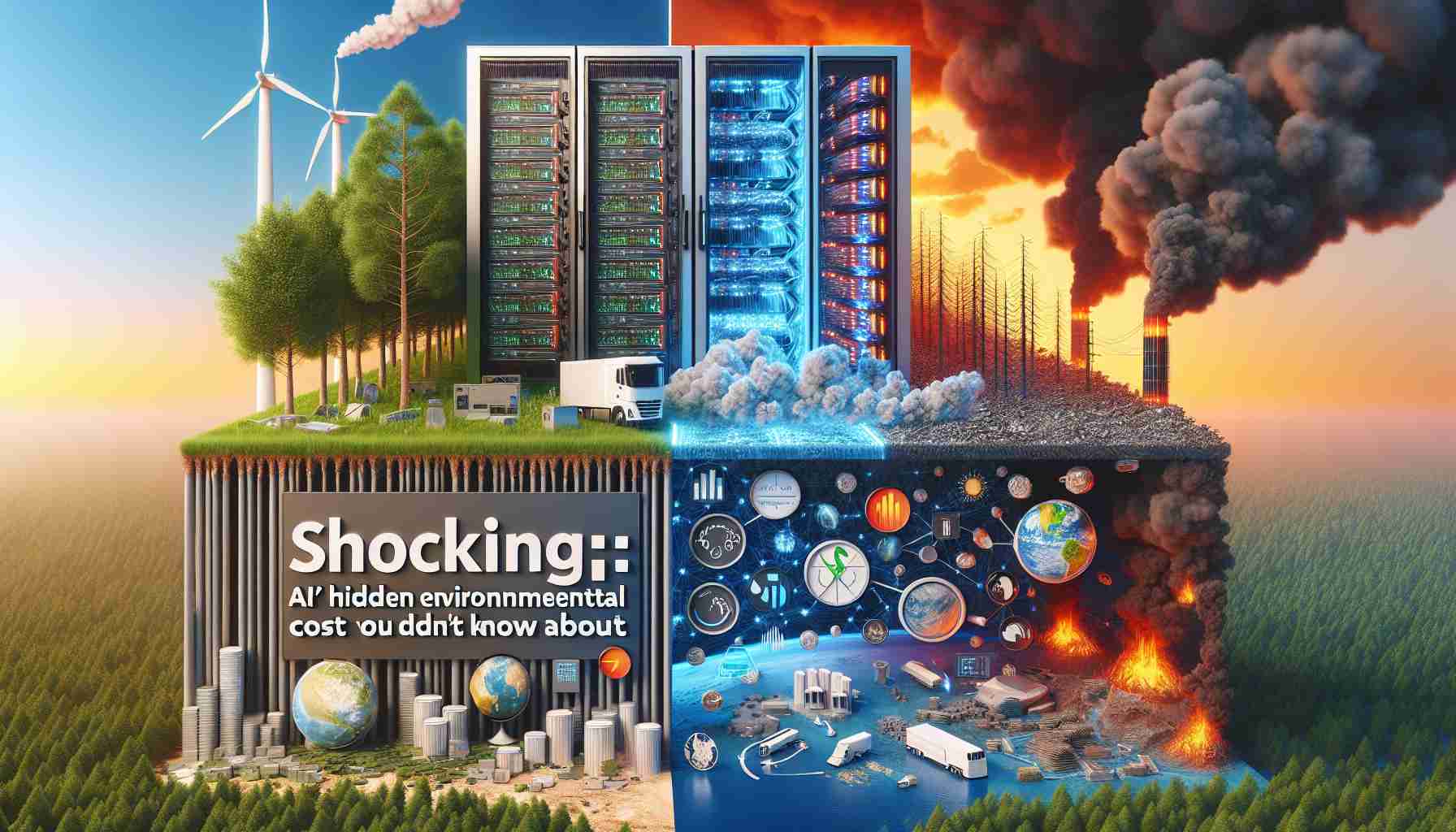In a striking revelation from Nature Computational Science, new research highlights a looming crisis: AI technology could generate between 1.2 million to 5 million tons of electronic waste by 2030. While this figure is just a fraction of the over 60 million tons of global e-waste produced annually, it presents a growing environmental concern.
E-waste Problem Escalates with AI Boom
Electronic waste includes discarded devices such as air conditioners, TVs, mobile phones, and laptops. These contain harmful materials that can seriously impact human health and the environment if not properly managed. Furthermore, valuable metals within these devices often go to waste instead of being recycled.
The report warns that the rapid AI growth exacerbates e-waste levels. A key contributor to AI-associated e-waste is high-performance computing hardware in data centers and server farms. These devices contain precious metals like copper, gold, and silver, along with hazardous materials like lead and mercury. The swift pace of hardware development, with devices only lasting 2 to 5 years, forces quick obsolescence.
The Significance of E-Waste Recycling
While e-waste is not solely caused by AI advancements, the technology’s rapid spread demands better waste management solutions. Extending device lifespan and reusing components can drastically cut e-waste by up to 86%. Despite this potential, only about 22% of current e-waste is properly collected and recycled. Informal systems often recover valuable metals but fail to safely handle hazardous materials.
Security and Policy Implications
Data protection presents a major challenge in reducing AI-driven e-waste. Device destruction ensures confidentiality but hampers recycling efforts. Proper data removal from hardware is crucial, particularly for companies handling sensitive information. Effective e-waste management, especially from AI, requires robust policies and responsible corporate behavior to safeguard both people and the planet.
Practical Tips and Fascinating Facts About Electronic Waste Management
As the race to harness the power of AI intensifies, we face an often-overlooked consequence: the spike in electronic waste (e-waste). It’s crucial not only to be aware of the problem but also to understand and implement effective strategies to mitigate it. Here, we share tips, life hacks, and interesting facts to help manage e-waste and make a positive environmental impact.
1. Extending Device Lifespan
One straightforward method to reduce e-waste is to extend the lifespan of your electronic devices. Here are a few life hacks to help with this:
– Regular Maintenance: Clean your devices regularly and ensure they are running the latest software. This helps improve efficiency and extend their operational life.
– Use Protective Gear: Invest in screen protectors and durable cases to prevent physical damage.
– Upgrade Instead of Replace: Consider upgrading parts, like adding more RAM or replacing a battery, instead of buying a new device.
2. Recycle Responsibly
If you must dispose of electronics, ensure they are recycled professionally. Here’s what you can do:
– Locate Authorized Recyclers: Use services from certified e-waste recyclers to ensure proper handling. Look for programs such as those offered by leading tech manufacturers and retailers.
– Know What’s Recyclable: Most e-waste contains valuable metals like gold and copper. Check which components or devices can be recycled in your area.
To learn more about responsible recycling practices and find local recyclers, refer to US Environmental Protection Agency.
3. Donate or Sell Unused Electronics
If a device is still functional, consider selling it or donating it to charities or schools, which can extend its useful life.
– Donation Programs: Some organizations refurbish used devices for educational purposes.
– Online Marketplaces: Platforms like eBay or Craigslist can help find buyers for used electronics.
4. Embrace Eco-Friendly Technology
When purchasing new equipment, opt for products that are eco-friendly and designed with modularity for easier maintenance and repair. Look for:
– Energy Star Certification: Indicates energy-efficient products.
– Modular Design: Products designed for easy repairability and upgrades.
5. Interesting Facts About E-Waste
– Precious Metals: Recycling 1 million laptops can recover up to 35,000 pounds of copper, 772 pounds of silver, and 75 pounds of gold.
– Economic Value: The global e-waste market is valued at over $62 billion, greater than the GDP of some countries.
Finally, remember that combating e-waste is not solely a technical problem but also requires robust policy frameworks and an emphasis on sustainability from both manufacturers and consumers. By taking these proactive steps, you contribute to reducing e-waste and safeguarding our environment for future generations.








